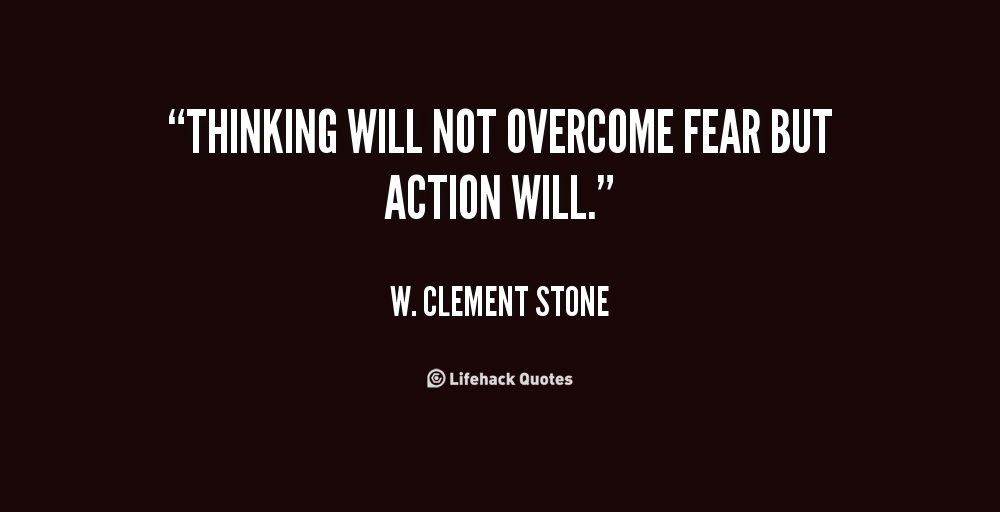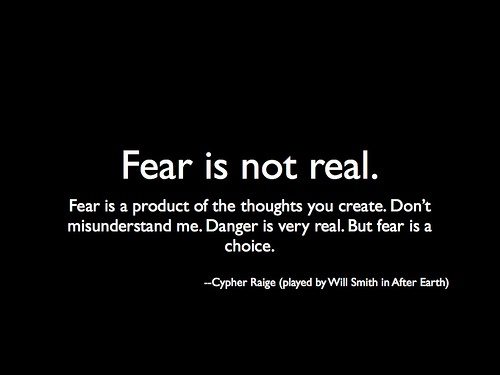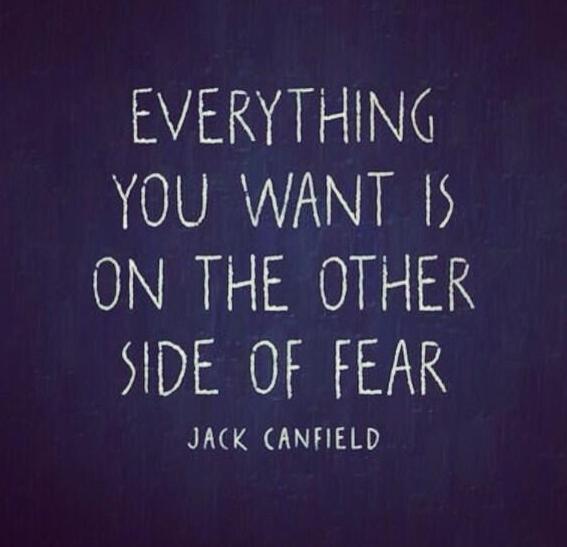The Primal Key to Mental Toughness: How to Transform Your Mindset by Changing Your Brain
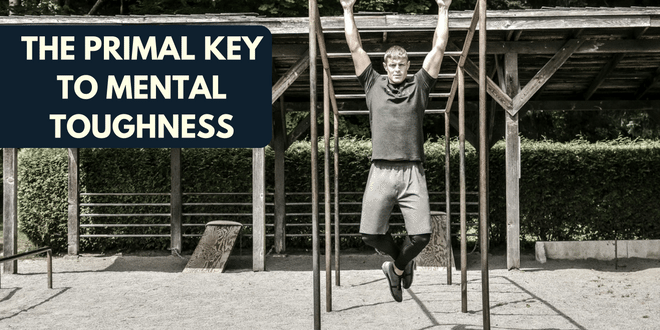
I remember when I learned the true importance of mental toughness.
It hit me with the force of a 220-pound epiphany, throwing me on the ground and choking me into submission.
Literally.

It was college, competing in my first jiu-jitsu tournament. I’d been drawn to jiu-jitsu for its emphasis on form and technique over brute strength. That meant I could get an advantage over bigger guys the same way I did back in high school football: by being quick and executing well.
And for the first year of class, I’d been beating guys who had a big size advantage over me, including the guy I was up against in the first round of the tournament.
But that was class. This was a competition.With people. Watching.
And every one of the hundred or so sets of eyeballs crowded in a big circle around us were on me. Actually, they were on both of us, and a lot of them were probably wandering around, but in my head, they were all looking at me, thinking, “This guy? No way this guy wins.”
I could feel my nerves take hold. And I started to choke.
As we squared off against each other, the whole environment seemed to shift: we weren’t two college students about to engage in a friendly competition. We were two wild animals about to fight for dominance, maybe survival, surrounded by a circle of whooping and hollering tribe members in a sort of primordial fight club.
That’s what my freaked-out brain and body were telling me, anyway.
Suddenly I saw this guy for how big he really was. And while I shrank back from the pressure, he seemed to somehow transform into an even bigger, wilder feral mutant.
Somehow, the same adrenaline rush that made me choke was working in his favor. It brought out his A game, and my X, Y or possibly Z game. And all my preparation, my technique, and most importantly my confidence, evaporated in a scramble of neurons firing off an ancient and formidable fight-or-flight response.
And just like that, he beat me before it started.
And in front of all those people.
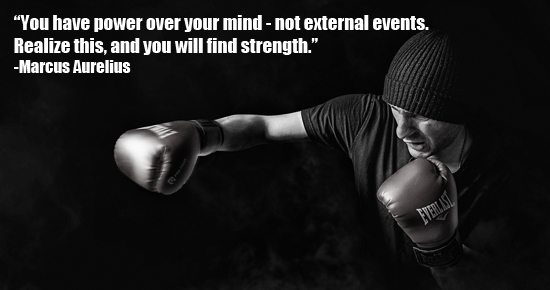
I went home nursing my wounded ego, wondering what in the hell just happened.
I could perform so well in class, composed and focused, and yet, evidently, I completely choked when it came down to an actual competition.
And though I didn’t know the full answer, I knew the ballpark. It was that mysterious, intangible element that everyone talks about being so important.
It was my mindset.
I’d always heard that any game was 90% mental. I don’t know how anyone landed on that number, but at the time, it sounded low. After all, by losing the mental game, I’d lost 100% of the competition.
My opponent was mentally tough.
And I wasn’t.
That was the difference. And it made all the difference.
After that dose of humility, I vowed to solve the problem of mindset, once and for all.
I had to. I knew if I didn’t, I’d always be pushed back from my goals, regardless of how good I got at anything. I didn’t want to become one of those countless guys who could have been good but couldn’t take the pressure.
And this didn’t just apply to sports and competition. It had to do with everything in life. After all, if you choke when the pressure’s on, how far can you really go with anything?
But for how important everyone said mental toughness was, I couldn’t find anyone teaching how to train it. I couldn't just take a class and learn it like jiu-jitsu or economics or underwater basket weaving.
A little strange for something that supposedly makes up 90% of the game.
And when I did try to research mental toughness, I found lots of people talking about it, but few who seemed to really know what they were talking about. There were plenty cliches and platitudes, but no real precise and actionable definitions what mental toughness even was, outside of a loosely strung together concepts like confidence, focus, resilience, and motivation.
Okay, sounds good.
But the question remained: how do I improve mental toughness?

How do I turn these bright ideas into reality?
My experience at the tournament gave me a place to start: I knew the problem was the mindset, but somehow, the mind was not the battlefield.When I looked back and replayed it in my mind (which I did compulsively for at least the next week or so), I could see that all the symptoms of nerves were physical.
When I looked back and replayed it in my mind (which I did compulsively for at least the next week or so), I could see that all the symptoms of nerves were physical.
I’d heard all the pep talks, all the motivational quotes, all the theories, and ideas. But none of that stood a chance against the primal, full-body rush of anxiety that had consumed me. There was no negotiating with it. When that primal fight-or-flight switch got triggered, everything else went out the window.
I knew the solution had to include the body--the whole nervous system had to be taken into account. So over the next years, I went deep into all the mind-body disciplines I could find: yoga, meditation, tai chi, hypnosis, visualization. Some of these techniques had an impact, but none seemed to go deep enough into that primal core of the problem. Eventually, I discovered something that did: what I would come to call Neuromuscular Release Work (NRW), a type of workout that releases deep, chronic neuromuscular tensions in the body to transform the brain into a state of primal mental toughness.
And after practicing NRW for years, and transforming my own body and brain for mental toughness on the deepest level possible, I finally cracked the code.
I knew what mental toughness was.
So here, from years of my own extensive experience (as well as recent scientific research), is a simple, scientific definition of mental toughness:
These two parameters go all the way down into the most fundamental depths of the mind and body. They’re the fundamental building blocks of your mindset. Whatever beliefs, attitudes, or affirmations you may run through your head, they’re secondary to these most basic factors.
I find this out through my own training with NRW.
But it wasn’t until I discovered recent research out of Columbia and Harvard that it’s also grounded it was in hardcore science.
These two factors are so fundamental and decisive because they’re essentially rooted in the hardcore, physical realities of hormones and body posture.
These researchers had set out to find what made the difference between leaders with powerful, “Alpha” qualities--feelings of power, risk tolerance, leadership ability--and those without them (in our language, those with and without mental toughness).
They found the difference came down to levels of two precise and measurable hormones: testosterone (the dominance hormone) and cortisol (the stress hormone).
When testosterone is high and cortisol is low, you get the mentally tough Alpha qualities. When the equation is reversed, you don’t.
So basically, mental toughness is a physical phenomenon--a brain cocktail.
If you’ve got the levels right, you’re mentally tough.
If you don’t...well, then you aren’t.
That’s why you can’t just think your way into mental toughness. Hormones are real, physical things, not just ideas or thoughts that you can reorganize like refrigerator magnets.
The science confirms it: mental toughness is not in your mind; it’s in your body and brain. It’s a hardcore reality.
And if you know how, you can leverage that reality.
You can hack the system.
You can change your brain to train mental toughness.
The same researchers found that testosterone and cortisol levels are directly and dramatically impacted by body posture--the most primal language of the organism.When the posture is “big” and open, testosterone levels go up and cortisol levels go down, resulting in overall mental toughness. When the posture is shrunken and constricted, testosterone goes down and cortisol goes up, resulting in nerves and a weak mindset.
The researchers suggest a few little body posture tricks help temporarily boost mental toughness--putting the arms up in a V shape, or standing like Wonder Woman, with fists on hips and chest out. Basically, banishing mental weakness in the same way you might try to scare away a bear who wandered into your camp site.
Sounds great, right? If mindset really does come down to hormones and body posture, shouldn’t that solve the issue? Shouldn’t you be able to turn yourself into a dominant Alpha with the flick of a switch?
Well, the reality is a little different.While those tricks can have some temporary impact, they fail to give long, lasting results.
While those tricks can have some temporary impact, they fail to give long, lasting results.As I mentioned, I found my way to the high-dominance,
As I mentioned, I found my way to the high-dominance, the low-stress definition of mental toughness by working backward from the results I got with Neuromuscular Release Work.
By systematically releasing the deep, chronic neuromuscular tensions both on my own and with clients, I went through a wide variety of mental and physical transformations. But when I tried to narrow it down and understand what, fundamentally was happening, it all seemed reducible to a dramatic increase in energy/dominance, and a decrease in stress/tension.
But I also found that those layers of tension go way deeper than can be accessed by any quick-fix method. Even if you imitate an open power posture, if your body’s overall neural blueprint is tense and constricted, then the best you can hope for is a small, temporary tweak.
It shouldn’t be that way, of course.
The body’s natural, primal posture is one of relaxed openness--the exact posture that results in high levels of mental toughness.
https://youtu.be/LCPgvTRftZg
That’s what we’re born with.
Unfortunately, no one stays there for long. As we grow up and develop, the body takes on an enormous amount of deep, chronic neuromuscular tension. Everyone’s patterns are different, but no one is immune. These tensions keep the whole nervous system locked into a frozen fight-or-flight response.
That’s what prevents the whole body from holding an open posture. You can strike a pose, get a massage or a chiropractic adjustment, or stretch out some surface-level tensions, but in a few days, hours or minutes, your system snaps back to its chronic holding pattern like a rubber band.
This is why fake confidence never works, whether through verbal bravado, or a fake puffed up the chest. The brain knows the difference. You can’t fake it.
That’s the bad news.
The good news?
If you can release that deep neuromuscular tension and transform your body and brain into a permanent state of mental toughness, you won’t need any tricks or gimmicks.
You’ve got it.
It’s you.
If you ask the average person about what happened in my tournament all those years ago--even an experienced and seasoned athlete--they probably would give you some cliche about how I didn’t believe enough in myself, needed to pump myself up or prop myself up with some positive thinking.
But the real battle for mental dominance was going on on a much deeper level.
And although my example of the tournament is a high intensity, high stakes situation, the same dynamics apply to every moment of every day. You take your body and brain with you, wherever you go. Whatever you’re trying to achieve in life, mental toughness is a must.
https://youtu.be/yG7v4y_xwzQ
My own experience with NRW is that it’s not for everybody. It’s strong medicine. Releasing the energies trapped in your neuromuscular tensions is truly transformative, and not everyone is ready for that.
But this is a case where knowing really is half the battle.
Anyone, at any time, can start taking steps toward mental toughness by internalizing this knowledge and applying it in small doses. Bring the attention to the body. Scan it for tension. Notice your posture--when it shrinks and when it expands. Notice the connection between these bodily states and your mental state.
Bit by bit, this kind of focused attention can guide your system a little bit closer to its native state of primal posture and mental toughness.Most importantly, remember this: your mind--and therefore your mindset--is not floating off in an abstract world. It’s anchored in your body. Your body and mind are not two separate things; they’re two expressions of the same thing.
Believe me, I wish I could just wish my way into mental toughness like some New Agey pop psychology suggests. But it’s just not possible.
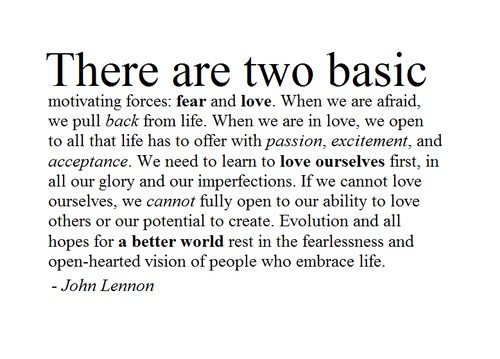
[divider style="dashed" top="30" bottom="30"]
Riley Holland is Head Coach of Neuromuscular Release Work (NRW) and the author of The Secret Science of Mindset: How to Train Your Brain for Mental Toughness. You can learn more about NRW by downloading Riley’s Free Report, “The 5 Laws of Mental Toughness.”
[divider style="dashed" top="30" bottom="30"]
It hit me with the force of a 220-pound epiphany, throwing me on the ground and choking me into submission.
Literally.

It was college, competing in my first jiu-jitsu tournament. I’d been drawn to jiu-jitsu for its emphasis on form and technique over brute strength. That meant I could get an advantage over bigger guys the same way I did back in high school football: by being quick and executing well.
And for the first year of class, I’d been beating guys who had a big size advantage over me, including the guy I was up against in the first round of the tournament.
But that was class. This was a competition.With people. Watching.
And every one of the hundred or so sets of eyeballs crowded in a big circle around us were on me. Actually, they were on both of us, and a lot of them were probably wandering around, but in my head, they were all looking at me, thinking, “This guy? No way this guy wins.”
I could feel my nerves take hold. And I started to choke.
As we squared off against each other, the whole environment seemed to shift: we weren’t two college students about to engage in a friendly competition. We were two wild animals about to fight for dominance, maybe survival, surrounded by a circle of whooping and hollering tribe members in a sort of primordial fight club.
That’s what my freaked-out brain and body were telling me, anyway.
[tweet_box design="box_9"]Do the thing you fear most and the death of fear is certain. – Mark Twain[/tweet_box]
Suddenly I saw this guy for how big he really was. And while I shrank back from the pressure, he seemed to somehow transform into an even bigger, wilder feral mutant.
Somehow, the same adrenaline rush that made me choke was working in his favor. It brought out his A game, and my X, Y or possibly Z game. And all my preparation, my technique, and most importantly my confidence, evaporated in a scramble of neurons firing off an ancient and formidable fight-or-flight response.
And just like that, he beat me before it started.
And in front of all those people.

The Game Is 100% Mental
I went home nursing my wounded ego, wondering what in the hell just happened.
I could perform so well in class, composed and focused, and yet, evidently, I completely choked when it came down to an actual competition.
And though I didn’t know the full answer, I knew the ballpark. It was that mysterious, intangible element that everyone talks about being so important.
It was my mindset.
I’d always heard that any game was 90% mental. I don’t know how anyone landed on that number, but at the time, it sounded low. After all, by losing the mental game, I’d lost 100% of the competition.
My opponent was mentally tough.
And I wasn’t.
That was the difference. And it made all the difference.
What Is Mental Toughness...I Mean, Really, What IS It?
After that dose of humility, I vowed to solve the problem of mindset, once and for all.
I had to. I knew if I didn’t, I’d always be pushed back from my goals, regardless of how good I got at anything. I didn’t want to become one of those countless guys who could have been good but couldn’t take the pressure.
And this didn’t just apply to sports and competition. It had to do with everything in life. After all, if you choke when the pressure’s on, how far can you really go with anything?
[tweet_box design="box_9"]Mental toughness is to physical as four is to one. – Bobby Knight[/tweet_box]
But for how important everyone said mental toughness was, I couldn’t find anyone teaching how to train it. I couldn't just take a class and learn it like jiu-jitsu or economics or underwater basket weaving.
A little strange for something that supposedly makes up 90% of the game.
And when I did try to research mental toughness, I found lots of people talking about it, but few who seemed to really know what they were talking about. There were plenty cliches and platitudes, but no real precise and actionable definitions what mental toughness even was, outside of a loosely strung together concepts like confidence, focus, resilience, and motivation.
Okay, sounds good.
But the question remained: how do I improve mental toughness?

How do I turn these bright ideas into reality?
The Mind Is the Body
My experience at the tournament gave me a place to start: I knew the problem was the mindset, but somehow, the mind was not the battlefield.When I looked back and replayed it in my mind (which I did compulsively for at least the next week or so), I could see that all the symptoms of nerves were physical.
When I looked back and replayed it in my mind (which I did compulsively for at least the next week or so), I could see that all the symptoms of nerves were physical.
I’d heard all the pep talks, all the motivational quotes, all the theories, and ideas. But none of that stood a chance against the primal, full-body rush of anxiety that had consumed me. There was no negotiating with it. When that primal fight-or-flight switch got triggered, everything else went out the window.
[tweet_box design="box_9"]Do not pray for an easy life, pray for the strength to endure a difficult one. – Bruce Lee[/tweet_box]
I knew the solution had to include the body--the whole nervous system had to be taken into account. So over the next years, I went deep into all the mind-body disciplines I could find: yoga, meditation, tai chi, hypnosis, visualization. Some of these techniques had an impact, but none seemed to go deep enough into that primal core of the problem. Eventually, I discovered something that did: what I would come to call Neuromuscular Release Work (NRW), a type of workout that releases deep, chronic neuromuscular tensions in the body to transform the brain into a state of primal mental toughness.
And after practicing NRW for years, and transforming my own body and brain for mental toughness on the deepest level possible, I finally cracked the code.
I knew what mental toughness was.
Primal Mental Toughness and the Alpha of the Pack
So here, from years of my own extensive experience (as well as recent scientific research), is a simple, scientific definition of mental toughness:
Mental Toughness means high dominance and low stress.
These two parameters go all the way down into the most fundamental depths of the mind and body. They’re the fundamental building blocks of your mindset. Whatever beliefs, attitudes, or affirmations you may run through your head, they’re secondary to these most basic factors.
I find this out through my own training with NRW.
But it wasn’t until I discovered recent research out of Columbia and Harvard that it’s also grounded it was in hardcore science.
These two factors are so fundamental and decisive because they’re essentially rooted in the hardcore, physical realities of hormones and body posture.
These researchers had set out to find what made the difference between leaders with powerful, “Alpha” qualities--feelings of power, risk tolerance, leadership ability--and those without them (in our language, those with and without mental toughness).
[tweet_box design="box_9"]Concentration and mental toughness are the margins of victory. - Bill Russell [/tweet_box]
They found the difference came down to levels of two precise and measurable hormones: testosterone (the dominance hormone) and cortisol (the stress hormone).
When testosterone is high and cortisol is low, you get the mentally tough Alpha qualities. When the equation is reversed, you don’t.
So basically, mental toughness is a physical phenomenon--a brain cocktail.
If you’ve got the levels right, you’re mentally tough.
If you don’t...well, then you aren’t.
That’s why you can’t just think your way into mental toughness. Hormones are real, physical things, not just ideas or thoughts that you can reorganize like refrigerator magnets.
The science confirms it: mental toughness is not in your mind; it’s in your body and brain. It’s a hardcore reality.
And if you know how, you can leverage that reality.
You can hack the system.
You can change your brain to train mental toughness.
How to Mix Your Mental Toughness Cocktail
The same researchers found that testosterone and cortisol levels are directly and dramatically impacted by body posture--the most primal language of the organism.When the posture is “big” and open, testosterone levels go up and cortisol levels go down, resulting in overall mental toughness. When the posture is shrunken and constricted, testosterone goes down and cortisol goes up, resulting in nerves and a weak mindset.
The researchers suggest a few little body posture tricks help temporarily boost mental toughness--putting the arms up in a V shape, or standing like Wonder Woman, with fists on hips and chest out. Basically, banishing mental weakness in the same way you might try to scare away a bear who wandered into your camp site.
Sounds great, right? If mindset really does come down to hormones and body posture, shouldn’t that solve the issue? Shouldn’t you be able to turn yourself into a dominant Alpha with the flick of a switch?
Well, the reality is a little different.While those tricks can have some temporary impact, they fail to give long, lasting results.
While those tricks can have some temporary impact, they fail to give long, lasting results.As I mentioned, I found my way to the high-dominance,
As I mentioned, I found my way to the high-dominance, the low-stress definition of mental toughness by working backward from the results I got with Neuromuscular Release Work.
By systematically releasing the deep, chronic neuromuscular tensions both on my own and with clients, I went through a wide variety of mental and physical transformations. But when I tried to narrow it down and understand what, fundamentally was happening, it all seemed reducible to a dramatic increase in energy/dominance, and a decrease in stress/tension.
But I also found that those layers of tension go way deeper than can be accessed by any quick-fix method. Even if you imitate an open power posture, if your body’s overall neural blueprint is tense and constricted, then the best you can hope for is a small, temporary tweak.
It shouldn’t be that way, of course.
The body’s natural, primal posture is one of relaxed openness--the exact posture that results in high levels of mental toughness.
https://youtu.be/LCPgvTRftZg
That’s what we’re born with.
Unfortunately, no one stays there for long. As we grow up and develop, the body takes on an enormous amount of deep, chronic neuromuscular tension. Everyone’s patterns are different, but no one is immune. These tensions keep the whole nervous system locked into a frozen fight-or-flight response.
That’s what prevents the whole body from holding an open posture. You can strike a pose, get a massage or a chiropractic adjustment, or stretch out some surface-level tensions, but in a few days, hours or minutes, your system snaps back to its chronic holding pattern like a rubber band.
This is why fake confidence never works, whether through verbal bravado, or a fake puffed up the chest. The brain knows the difference. You can’t fake it.
That’s the bad news.
The good news?
If you can release that deep neuromuscular tension and transform your body and brain into a permanent state of mental toughness, you won’t need any tricks or gimmicks.
You’ve got it.
It’s you.
Life Beyond Fear
If you ask the average person about what happened in my tournament all those years ago--even an experienced and seasoned athlete--they probably would give you some cliche about how I didn’t believe enough in myself, needed to pump myself up or prop myself up with some positive thinking.
But the real battle for mental dominance was going on on a much deeper level.
And although my example of the tournament is a high intensity, high stakes situation, the same dynamics apply to every moment of every day. You take your body and brain with you, wherever you go. Whatever you’re trying to achieve in life, mental toughness is a must.
https://youtu.be/yG7v4y_xwzQ
My own experience with NRW is that it’s not for everybody. It’s strong medicine. Releasing the energies trapped in your neuromuscular tensions is truly transformative, and not everyone is ready for that.
But this is a case where knowing really is half the battle.
Anyone, at any time, can start taking steps toward mental toughness by internalizing this knowledge and applying it in small doses. Bring the attention to the body. Scan it for tension. Notice your posture--when it shrinks and when it expands. Notice the connection between these bodily states and your mental state.
Bit by bit, this kind of focused attention can guide your system a little bit closer to its native state of primal posture and mental toughness.Most importantly, remember this: your mind--and therefore your mindset--is not floating off in an abstract world. It’s anchored in your body. Your body and mind are not two separate things; they’re two expressions of the same thing.
Believe me, I wish I could just wish my way into mental toughness like some New Agey pop psychology suggests. But it’s just not possible.
The animal within has to be respected. It holds the key to the puzzle of your mind, and when you learn to speak its language, the key to its transformation.

[divider style="dashed" top="30" bottom="30"]
 Author Bio: Riley Holland
Author Bio: Riley Holland
Riley Holland is Head Coach of Neuromuscular Release Work (NRW) and the author of The Secret Science of Mindset: How to Train Your Brain for Mental Toughness. You can learn more about NRW by downloading Riley’s Free Report, “The 5 Laws of Mental Toughness.”
[divider style="dashed" top="30" bottom="30"]


